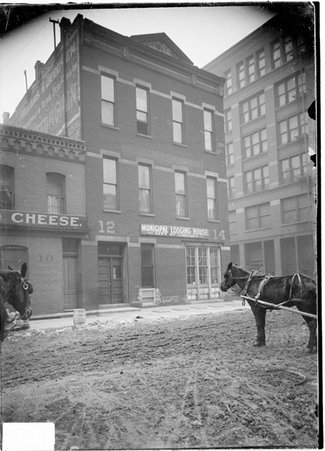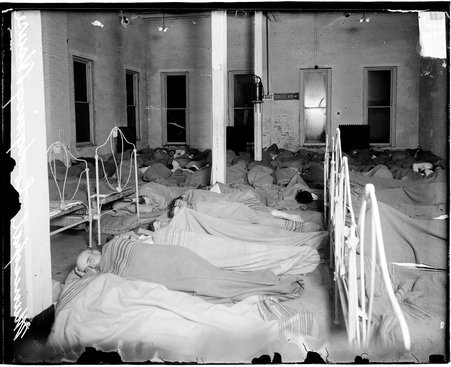
Chicago’s always had problems with unemployment, poverty, and homelessness. During hard times, these issues were on an unprecedented scale. During the early 1900s, there were tens of thousands of homeless people in Chicago. The causes of homelessness were the same as today, including unemployment, mental health issues, and alcohol abuse. Many homeless people came to Chicago looking for those fabled streets paved with gold. Some made those streets their “home.”
The book, “Beat Cop Chicago’s Chief O’Neill and the Creation of Irish Music” by Michael O’Malley, describes how Chicago tried to handle the homeless issue in the early 1900s.
Like today, in 1900, the City of Chicago tasked police officers with addressing many social issues along with crime control. Police officers of the time removed dead horses, returned lost children to their parents, captured stray dogs, enforced health and building codes, provided first aid to injured people, and ambulances to transport people to hospitals. Police stations sheltered the homeless in empty jail cells overnight.
Chicago’s homelessness attracted national attention. In 1901, Chicago opened the Municipal Lodging House at 162 N. Union Avenue. It is the now Lake Street exit ramp of the expressway.

The Lodging House was under the auspices of the Chicago Police Department with a civilian administrator. The Chief of police issued an annual report to the city.
The lodging house provided shelter, meals, and employment services. Chicago’s various industries were growing fast. They needed workers. The Municipal Lodging House funneled people into jobs in a unique partnership between social services and industrial and commercial interests.
In 1903, the Municipal Lodging House sheltered over 9000 people and served over 15,000 meals. They found jobs for over 2000 people.
The Police Department was relieved of housing and feeding people in jails. Without robbing people of their dignity, the Municipal Lodging House provided aid, food, and employment to the homeless population. People and industry benefited from the Municipal Lodging House’s unique partnership.
The early 20th Century was called the Progressive Era because of industrial advances, progressive politics, and the establishment of social service agencies in urban areas. Sometimes industry and social service agencies partnered for their mutual benefit.
Progressive is now regressive. Chicago still has a large-scale homeless issue. Some of the same reasons for homelessness do not differ from those in the early 20th Century. We do not live in a progressive era. The city no longer shelters and feeds people. We do not transition the unemployed to jobs.
There are people and organizations in Chicago providing food, clothing, and other necessities. Some provide medical and dental services. Yet, the City of Chicago does what it does best, blows hot air. Politicians, especially so-called progressive politicians, are all talk and no action. They do not call Chicago the Windy City for nothing.
The Municipal Lodging House concept was ahead of its time. It would be impossible to create lodging houses today. Developers scoop up property to build ugly trendy apartment and condo buildings. Nasty NIMBYs populate this city of scoundrels. They are people who only want to help themselves and keep their “neighborhoods” for their privileged selves.
Like poverty, there will always be homeless people in Chicago. But the high number of impoverished homeless people is an embarrassment. We need more facilities to provide shelter, meals, medical and mental health, addiction, and job placement and housing placement services.
There is plenty of vacant land and buildings that the city could repurpose or develop to provide services. An idea from the early last century was more progressive than what we are doing today. Modern “progressive” people and politcians are not so progressive after all. Like the NIMBYS, they do not care about anyone but themselves.